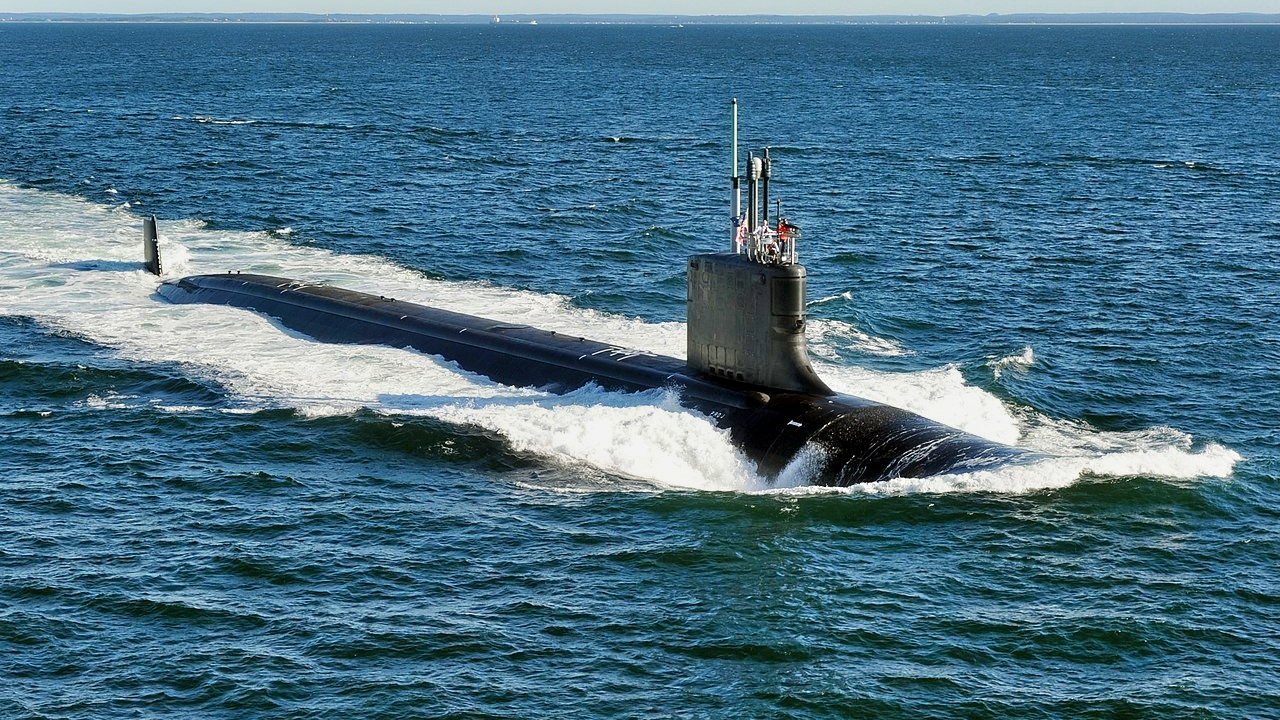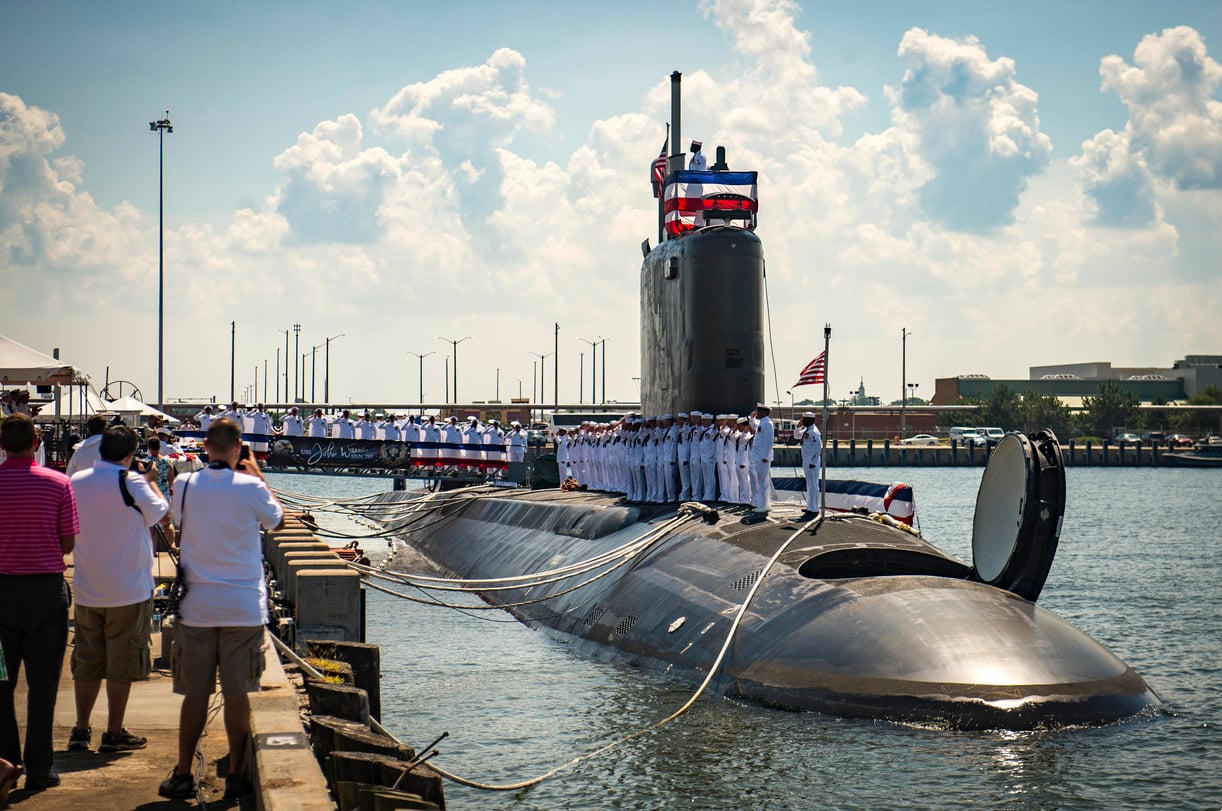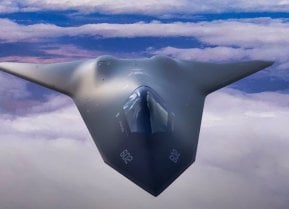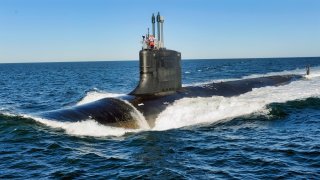Brazil, Not Australia, Could be the Next Nation to Have Nuclear-Powered Submarines
Brazil's Submarine Development Program (PROSUB) has progressed significantly, including the recent milestone of cutting steel for its first nuclear-powered submarine, Álvaro Alberto.
Summary and Key Points: The trilateral AUKUS program aims to develop nuclear-powered submarines for the UK and Australia, expected to be operational by the mid-2030s, granting Australia access to an exclusive club of nations with such advanced naval capabilities.

-However, Brazil, with French support, is likely to achieve this milestone first. Brazil's Submarine Development Program (PROSUB) has progressed significantly, including the recent milestone of cutting steel for its first nuclear-powered submarine, Álvaro Alberto.
-This development is crucial for Brazil to protect its extensive coastline and exclusive economic zone, essential for its trade and resource extraction.
AUKUS vs. Brazil: The Race for Nuclear-Powered Submarines
The trilateral AUKUS program calls for the shared development of defense systems among Australia, the United Kingdom, and the United States. The first pillar of AUKUS is to produce a nuclear-powered submarine that could see service with the UK's Royal Navy and Australia's Royal Australian Navy.
When completed in the mid-2030s, the submarine will grant Canberra access to an exclusive club.
Only six nations – the U.S., the UK, France, Russia, China, and India – operate nuclear-powered submarines, which are among the most advanced naval platforms. The boats offer nearly unlimited endurance, can stay submerged for weeks and even months at a time, and travel underwater at high speeds.
Even with the AUKUS effort well underway, Australia might not be the next nation to develop a nuclear-powered submarine. The Brazilian Navy is likely to get there first.
In March, French President Emmanuel Macron announced that France would aid Brazil in developing nuclear technology, specifically their propulsion systems.
"I want us to open the chapter for new submarines ... that we look nuclear propulsion in the face while being perfectly respectful of all non-proliferation commitments," Macron said at the launch of a conventionally powered French-Brazilian submarine near Rio de Janeiro, Le Monde reported. "You want it, France will be at your side."
Brazilian President Luiz Inacio “Lula” da Silva, who also attended the ceremony, initiated the submarine program in 2008 during his previous term in office.
French military contractor Naval Group has helped with the design and construction of the future nuclear-powered submarine – to be named Álvaro Alberto – while the nuclear boiler, a crucial component of the propulsion system, is being indigenously developed.

Just this month, the Brazilian Navy announced that the first steel was cut for the submarine's hull, a milestone that marks the first step in the production process.
A New Submarine Powerhouse
Brazil’s Submarine Development Program (PROSUB) has been a long time coming.
PROSUB called for the modernization of the South American nation's aging submarine force, and it has already seen the successful completion of multiple conventionally powered subs, including Riachuelo (S40), Humaitá (S41), and Tonelero (S42), while Angostura (S43) is now under construction and set to be launched in 2025.
While its diesel-electric submarine fleet has grown, progress on Álvaro Alberto has been slow. As a result, Brasília has called for Paris to increase the transfer of technology to integrate the reactor into the submarine – and for the French to sell it equipment linked to nuclear propulsion.
Brasília wants to grow its navy in order to help protect its 8,500 kilometer-long (5,280 mile-long) coastline, known as the "Blue Amazon," its exclusive economic zone (EEZ). More than 95% of Brazil's foreign trade passes through its EEZ, and this is where it extracts 85% of its oil and 75% of its natural gas. A modern navy is seen as essential to the coastal zone’s security.
Author Experience and Expertise: Defense Expert Peter Suciu
Peter Suciu is a Michigan-based writer. He has contributed to more than four dozen magazines, newspapers, and websites with over 3,200 published pieces over a twenty-year career in journalism. He regularly writes about military hardware, firearms history, cybersecurity, politics, and international affairs. Peter is also a Contributing Writer for Forbes and Clearance Jobs. You can follow him on Twitter: @PeterSuciu. You can email the author: [email protected].
All images are generic photos of U.S. Navy Virigina-Class submarines.


